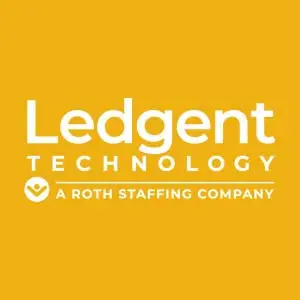ROLE: IT SUPPORT MANAGER ROLE
LOCATION: ATLANTA, GA
MODE: HYBRID
DURATION: FULL TIME
KEY SKILLS : L1 & L2 Dynatrace Support, Azure AND Mobile
At a high level, your role is about bridging the gap between IT, business teams, and engineering so that IT support is proactive, effective, and aligned with business needs. Here's what that looks like in practice:
Key Responsibilities
- Be the Bridge Between IT and Business Teams
- Make sure business teams understand what IT support can and cannot do, including response times, escalation processes, and SLAs.
- Take time to understand how business teams operate, their workflows, and their pain points so IT support can add real value.
- Ensure the support team knows the business context behind issues, not just the technical side.
- When talking to business leaders, explain technical issues in terms of business impact-how does it affect revenue, operations, or customer experience?
- Have regular check-ins with business teams to stay ahead of issues and make IT support more proactive.
- Have agendas for meeting, follow-up items, closing the loop, etc
- Make Sure IT Support is Ready for New Features & System Changes
- Before any new capabilities or updates go live (mobile apps, web, APIs, POS, etc.), make sure your team is trained and ready to support them.
- Being involved in feature mapping (or earlier stages), giving guidance on what metrics SHOULD be tracked (best practices)
- Work with engineering and product teams to document changes, create troubleshooting guides, and develop runbooks to ensure clear, standardized procedures are in place for issue resolution and system maintenance.
- Push to get IT support involved earlier in project planning so potential support challenges can be addressed before launch.
- Own Incident Management & SLA Compliance
- Hold the team accountable for meeting SLAs-response times and resolution times should be tracked and reported.
- When major incidents happen, communicate quickly and clearly to business leaders:
- Real-time updates on what's happening and estimated fix times.
- Advance notice for planned maintenance and potential impact.
- Quarterly reports on IT support performance, trends, and improvement efforts.
- Conduct post-mortems on major incidents-figure out what went wrong and make sure it doesn't happen again.
- Lead & develop the L1/L2 Support Team
- Make sure the team is clear on their roles and responsibilities so work flows smoothly.
- Train and mentor, the team so they can handle more issues independently instead of escalating everything.
- Encourage knowledge sharing by keeping a centralized knowledge base and hosting regular learning sessions.
- Reduce unnecessary escalations-L1/L2 should own more problem-solving without always involving engineering.
- Use Data to Drive Better Support & Business Decisions
- Track and report on key IT support metrics, including:
- Ticket resolution times (how fast we respond and close out issues).
- Escalation trends (how many issues get pushed up to L2 or engineering).
- System health metrics from Dynatrace and other tools.
- Business impact metrics (how IT issues affect sales, transactions, loyalty engagement, etc.)
- Use this data to spot trends, improve processes, and make IT support more proactive.
- Work Closely with Observability & Engineering Teams
- Partner with the observability team to set up real-time monitoring dashboards for critical systems.
- Make sure the IT support team knows how to use monitoring tools like Dynatrace to catch and escalate potential issues before they impact the business.
- Collaborate with engineering and infrastructure teams on advanced troubleshooting when needed.
- Shift from reactive firefighting to proactive monitoring to prevent issues before they happen.
- Take Ownership & Be Proactive
- This role isn't just about keeping things running-it's about constantly looking for ways to improve.
- Don't wait for problems to be pointed out-get ahead of them and drive solutions.
- If something isn't working, speak up and work with leadership to fix it.
- We'll have regular check-ins to go over progress and ensure you're meeting expectations.
If you're doing this role well, we should see:
- Stronger alignment between IT support and business teams.
- You should have a solid understanding of what's important to the business, the critical processes, and be able to present supporting data on system health.
- The business should also feel confident in our ability to effectively monitor and observe system performance.
- You'll see that business partners start to reach out to you as a trusted resource if this is going well
- A more capable, independent L1/L2 support team.
- Proactive system monitoring that prevents problems instead of just reacting to them.
- Faster issue resolution and fewer unnecessary escalations.
- Clear, data-driven reporting on IT support health and business impact.
ACI (Advanced Computing International) is a Global Technology Services, Products & Solutions Company focused on designing and delivering the next generation applications and digital experiences for businesses and consumers. We specialize in Big Data & Analytics, Digital Transformation, IT Service Management, Cognitive Solutions, Artificial Intelligence, IOT & Future Networks, DevOps, Enterprise Applications & Managed Infrastructure Services & Industry Specific Solutions.
Leveraging the insights gained from working on innovative solutions and disruptive technologies, ACI develops Solutions to enhance business performance, accelerate product & applications time-to-market, harmonize Consumer Experiences and streamline their business operations. ACI works with clients across different business sectors: Financial Services, Healthcare, Manufacturing, Hi-Tech, Media, Utilities, Public sector, Retail, Telecom, E-commerce & Logistics, and Higher Education. ACI s core DNA is built on Innovation and co-existence to build a collaborative ecosystem where companies and consumers win.



